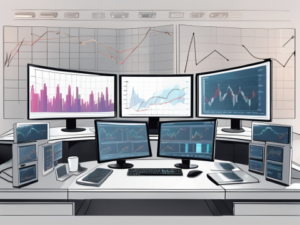In recent years, the use of artificial intelligence (AI) has gained significant traction in various industries, especially within the realm of finance where a prop firm comparison guide would reveal increasing reliance on advanced algorithms. One area where AI has shown immense potential is prop firm trading, with platforms like Vantage Elite Trader leveraging AI to enhance performance. Proprietary trading, also known as prop trading, is the practice of trading securities using the firm’s own capital rather than clients’ funds. Moreover, by examining prop trading firms comparison, one can observe how AI has been leveraged to gain competitive advantages in this sector. This article delves into the role of AI in prop firm trading, exploring its impact, benefits, challenges, and future prospects.
Understanding Proprietary Trading
Before delving into the intersection of AI and proprietary trading, it’s important to have a clear understanding of what proprietary trading entails and its purpose.
Definition and Purpose of Proprietary Trading
Proprietary trading refers to the practice of trading financial instruments, including stocks, bonds, commodities, and derivatives, using a firm’s own capital. The primary purpose of proprietary trading is to generate profits for the firm.
Unlike traditional investment banking or asset management, where the primary goal is to generate returns for clients, prop trading firms trade using their own money. This gives them greater flexibility and the ability to take on higher risks in pursuit of higher returns.
Key Elements of Proprietary Trading
There are several key elements that define proprietary trading:
The Intersection of AI and Proprietary Trading
The emergence of AI in the field of trading has revolutionized how prop trading firms operate. AI refers to the use of computer algorithms that mimic human intelligence to analyze vast amounts of data, detect patterns, and make predictions.
The Emergence of AI in Trading
In recent years, AI has gained prominence in the finance industry, and prop trading firms are quick to embrace its potential. AI-powered systems can process vast amounts of market data, news feeds, and social media sentiment in real-time to identify patterns that humans may miss.
Machine learning algorithms enable these systems to continuously learn and improve their trading strategies. By analyzing historical data and market trends, AI models can make predictions with a high degree of accuracy, helping traders make informed decisions.
How AI is Changing Proprietary Trading
The integration of AI into proprietary trading brings several notable changes:
Benefits of AI in Proprietary Trading
The use of AI in proprietary trading offers several tangible benefits:
Enhanced Decision Making with AI
AI-powered systems provide traders with valuable insights and data-driven recommendations, empowering them to make informed decisions. By leveraging AI algorithms, prop trading firms can gain a competitive edge in the market.
Furthermore, AI models can process vast amounts of data and extract relevant information in real-time, enabling traders to respond swiftly to market changes and capitalize on profitable opportunities.
Risk Management and AI
Risk management is a critical aspect of proprietary trading. AI systems can monitor market conditions, detect potential risks, and adjust trading strategies accordingly. This reduces the likelihood of substantial losses and enhances the overall risk management framework of prop trading firms.
AI algorithms can also incorporate risk assessment models, enabling traders to evaluate and mitigate risks more effectively. By leveraging AI, prop trading firms can strike a balance between risk and reward, optimizing their trading operations.
Challenges and Limitations of AI in Proprietary Trading
While the integration of AI in proprietary trading offers significant advantages, it also poses certain challenges and limitations:
Ethical Considerations in AI Trading
The use of AI in trading raises ethical concerns, particularly regarding fairness and transparency. Some argue that AI-powered trading systems may create an uneven playing field, favoring firms with greater financial resources to develop sophisticated algorithms.
Additionally, there is a need to ensure that AI models are not biased or discriminatory in their decision-making processes. Regulatory frameworks and guidelines are necessary to address these ethical considerations and promote responsible AI adoption in the trading industry.
Technical Hurdles in Implementing AI
Implementing AI systems in prop trading firms requires significant technical expertise and resources. Developing and training AI models, integrating them with existing trading infrastructure, and ensuring data security are some of the technical challenges that firms may encounter.
Furthermore, AI models may not always yield accurate predictions, and their performance may be affected by unforeseen market conditions. Careful testing, validation, and monitoring are essential to mitigate these technical challenges and ensure the robustness of AI-powered trading systems.
The Future of AI in Proprietary Trading
The future of AI in proprietary trading looks promising. As technology continues to advance, AI models will become more sophisticated and capable of analyzing complex market dynamics.
Predicted Trends in AI and Trading
Experts predict several trends in the AI and trading landscape:
Preparing for an AI-Driven Trading Future
To prepare for an AI-driven trading future, prop trading firms should focus on:
In conclusion, the role of artificial intelligence in prop firm trading is expanding rapidly. AI-powered systems offer enhanced decision-making capabilities, improved risk management, and increased efficiency. However, challenges related to ethics and technical implementation need to be carefully addressed. The future holds great promise for AI in proprietary trading, and firms must prepare themselves to embrace this transformative technology.






